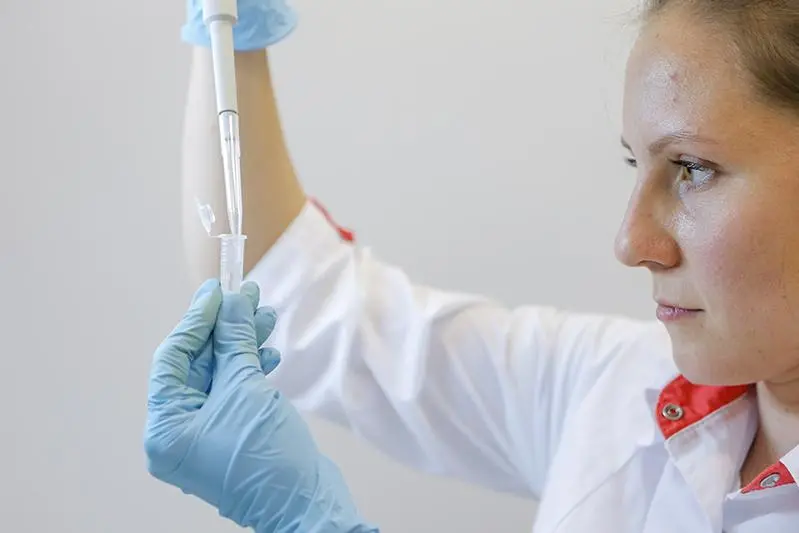PHOTO
President Vladimir Putin announced on Tuesday that Russia had approved a coronavirus disease (COVID-19) vaccine for wide use. Shortly afterward, the Russian health minister said the vaccine would be rolled out gradually, starting with health workers and teachers. Reactions to the announcement ranged from excitement, if not jubilation, by lay people around the world to shock and anger among the scientific community everywhere, even some in Russia.
Everyone has been eagerly awaiting the development and availability of a vaccine to the coronavirus, one that would finally bring back our normal activities: Meeting and hugging family members and dear friends, teaching and shopping normally, not wearing face masks or having to worry about touching our faces or washing our hands thoroughly 20 times a day.
The scientific community, however, was furious at how established research and health procedures were so blatantly disregarded. Indeed, never before has a vaccine been approved without “Phase 3” trials having been properly completed. Furthermore, very little information has been given or published about the vaccine or the (few) tests it has undergone. Normally — and more than 200 research teams are following this protocol in pursuit of a coronavirus vaccine — one must go through several phases: A pre-clinical one, where it is tested on animals to check for its safety, followed by a first safety phase on a small number of humans; then a second phase on 50 or so people to assess the vaccine’s efficacy; then a third phase on thousands to check for any secondary effects or long-term complications. The Russians tested their vaccine on 76 people, half of whom were a “control group” who were not given the vaccine but served as a comparison to the 38 who did. Brief reports said that those who were given the vaccine did develop mild symptoms and, most importantly, produced antibodies to fight the virus — a sign of success for the vaccine.
But there are actually at least seven research teams around the world (three in China and one each in the US, UK, Germany and Australia) that have already successfully passed that second phase and 25 others that will reach that stage soon. Why didn’t they get their vaccines approved? Because regulators do not normally approve vaccines at this stage. One must follow up with the third phase. The Russians changed the protocol by having the third phase conducted “in parallel” with the rollout. Many scientists boldly stated that they would never take that vaccine because we know nothing about the risks. It is better to be patient for a few more months than to take an unproven vaccine.
Russia has announced that 20 countries have expressed an interest in its vaccine and one can understand people’s temptation, especially since we have no indication how much longer we will need to be patient. Despite claims here and there (China, it is said, will have a vaccine in a few weeks), most experts say a vaccine will not be ready for rollout before early or mid-2021.
Why does it take so long? Because we have to wait for enough people who got the test shots (let’s say 10,000 people, while another group acts as control) to be infected. If the rate is 1 percent, that would give 100 people. They will then be monitored for their reactions to the (real) virus, any side effects, etc. All this, with the data analysis, takes several months at the very least.
Various steps are being taken to speed up the process, including conducting the third phase in countries that currently have many infections, including Brazil and South Africa, and also building the facilities that will be needed to mass-produce the vaccine once it is (properly) approved. Indeed, billions of doses will be needed, as two shots will most likely have to be given to each recipient.
Sorry to be the bearer of bad news, but there are also additional issues to be aware of. The vaccine will very likely be less effective for older people because their immune systems have been weakened with age and illnesses and will not respond as well to vaccines. We see this with the flu vaccine. Thus, old people will either need multiple shots (a few weeks apart) or have to be given a chemical (an adjuvant) with the vaccine to boost their immune system.
More bad news is that the vaccine will likely not immunize us completely from COVID-19. Like the flu shots, however, it will greatly reduce severe cases and the mortality rate, and will make the disease livable.
Speaking of the flu, the UK government has already decided to offer the flu vaccine for free to 30 million of its citizens. Indeed, there is evidence that a double infection of coronavirus and flu is more deadly than either alone; moreover, the coming (winter) flu season will send thousands of people to hospitals and lessen the facilities’ ability to deal with COVID-19 patients.
Finally, even when the vaccine is ready, there will be a priority list to go through (health care workers, etc.) and order to follow, because a billion or more doses cannot be produced or given all at once, which means more waiting.
To make a long story short, a coronavirus vaccine, practically speaking, is not for tomorrow or next month. In the meantime, we will just need to keep the discipline (face masks, social distancing, regular cleaning, etc.) as high as possible. Hopefully it won’t be for too much longer.
- Nidhal Guessoum is a professor at the American University of Sharjah, UAE. Twitter: @NidhalGuessoum
Copyright: Arab News © 2020 All rights reserved. Provided by SyndiGate Media Inc. (Syndigate.info).





















